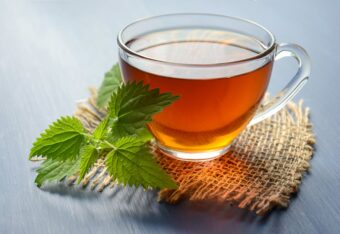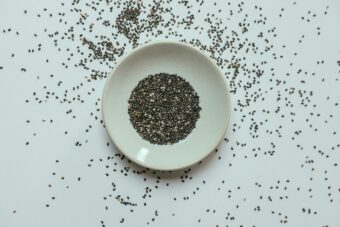
Exam season often comes with long nights and packed days, pushing students to find ways to stay awake and focused. While energy drinks have become a common go-to for that extra boost, they can come with risks.
Packed with sugar, caffeine, and artificial stimulants, energy drinks may be effective but aren’t always the healthiest option. Understand why energy drinks might not be your best bet and we share some healthy, effective alternatives to keep you going strong during study season.
How energy drinks work
Energy drinks work primarily through two components: caffeine and sugar. Caffeine acts as a central nervous system stimulant, increasing alertness and energy levels.
Healthline states an average 250ml cup of coffee contains 95–200 milligrams of caffeine, while a 60ml energy shot can have about the same amount. In addition to caffeine, energy drinks often contain additives like guarana and ginseng, which enhance their stimulating effects.
Although caffeine can improve alertness, consuming too much can lead to serious side effects. Healthline notes that excessive caffeine intake (over 400 mg per day) can result in symptoms such as an irregular heartbeat, trouble breathing, and even convulsions. The risk is even greater for those sensitive to caffeine, individuals with blood pressure issues, and children and teens.
Hidden Sugars
Energy drinks are notorious for their high sugar content. CNM Health Coach reports that many popular options contain over 30 grams of sugar per serving. Consuming such high amounts can contribute to weight gain, Type 2 diabetes, and increased cardiovascular disease risk.
Healthy alternatives to energy drinks
From nutrient-rich smoothies to soothing herbal teas, many options offer lasting energy without unwanted side effects. Before reaching for another energy drink, consider these healthier, student-friendly alternatives:
1. Water
One of the simplest energy boosters is water. Dehydration is a common but often overlooked cause of fatigue. Keeping hydrated can improve focus and prevent tiredness, helping you power through your study sessions.
2. Green powder
Greens powder is a blend of nutrient-rich superfoods like spinach, kale, and spirulina. It offers vitamins, minerals, and antioxidants that can enhance cognitive function and boost energy levels naturally without the sugar crash associated with energy drinks.
3. Green tea and herbal teas
Green tea contains caffeine but at a moderate level, combined with the amino acid L-theanine. This combination promotes calm alertness and sustained focus, reducing the jittery effect energy drinks can cause. It’s also rich in antioxidants that support brain health.

4. Beetroot juice
Beetroot juice is rich in nitrates that improve blood flow and oxygen delivery to the brain, which can enhance mental performance and focus. Unlike energy drinks, beet juice naturally boosts energy without artificial stimulants or high sugar content.
5. Yerba Mate
Yerba mate provides a balanced energy boost due to its natural caffeine content combined with a range of vitamins, antioxidants, and minerals. It offers a steady increase in energy without the crash or excess sugar of energy drinks, promoting alertness and mental clarity.
6. Matcha
Matcha is a powdered form of green tea with higher concentrations of antioxidants and L-theanine, promoting enhanced focus and calm energy. The combination of caffeine and L-theanine provides long-lasting, steady alertness without the spikes in energy levels or crashes associated with energy drinks.

7. Black tea
Black tea contains caffeine but in a milder dose than coffee or energy drinks. It enhances alertness, concentration, and focus with a more gradual energy release. Black tea also contains antioxidants like flavonoids, supporting brain health.
8. Kombucha
Kombucha is a fermented tea rich in probiotics, B vitamins, and antioxidants. It provides a mild energy lift from its natural caffeine and helps improve gut health, which can positively impact overall mood and mental clarity, without the high sugar content of most energy drinks.
9. Ginseng tea
Ginseng tea is known for its adaptogenic properties that help the body manage stress while boosting energy and mental performance. It can enhance focus without causing the overstimulation that energy drinks often do, and it supports sustained energy through its natural compounds.
10. Chia seed water
Chia seeds soaked in water create a gel-like drink that is hydrating and energising. The seeds contain omega-3 fatty acids, fibre, and protein, which help sustain energy levels and improve brain function. This drink is free of artificial stimulants and sugars found in energy drinks.

11. Coconut water
Coconut water is a natural source of electrolytes and hydration, which can help maintain energy levels and improve cognitive function. It’s low in calories and free from artificial additives, unlike energy drinks, making it a great choice for hydration during study sessions.
12. Lemon and saltwater
This simple mixture helps maintain hydration and provides a small energy boost through natural electrolytes and vitamin C. Lemon water helps mental alertness while salt aids in hydration balance. It’s a better option than energy drinks, which often contain artificial ingredients and excess sugar.
These options provide natural, long-lasting energy, mental clarity, and hydration while avoiding the negative side effects of artificial ingredients, excessive caffeine, and sugar found in energy drinks.
The truth about sports drinks
Sports drinks are marketed as a better alternative to energy drinks due to their lower caffeine content. According to CNN Health, most sports drinks contain electrolytes that help with hydration rather than artificial stimulants.
However, some sports drinks still carry a significant amount of added sugars, so reading labels carefully is key.
While energy drinks might seem like a quick fix during exam season, their risks often outweigh their benefits. High caffeine and sugar levels can lead to potential health issues, especially for younger individuals or those sensitive to stimulants.
Instead, opt for alternatives like water, teas, and natural juices that promote sustainable energy levels. Prioritising healthier choices will not only help you study better but also support your overall well-being in the long run.
Compiled by: Maegan-Leigh Jacobs
First published by Food & Home
Also see: Smoothie ideas to try for heart health




